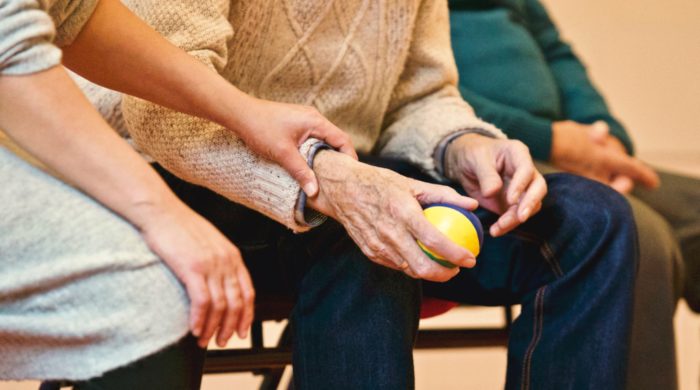One of the most important jobs in our society is that of a family caregiver, someone that looks after another person who’s in need of constant care and supervision in the home. Often the caregiver is a spouse, sibling, or child of the patient in need of assistance, and they support them in every possible way: emotionally, physically and sometimes also financially. This month, we celebrate those who give their time to care for loved ones.
The Basics of Caregiving
To those who aren’t yet family caregivers or who are just starting out, here are the basics:
What is a Caregiver?
A caregiver is a friend or family member who takes over when someone is unable to care for themselves due to aging, an accident or illness. The patient is often the same age or older than the caregiver, and the patient may not need constant medical assistance, so they’re able to stay in the home instead of moving into a care facility. However, they do need enough help, as they can no longer function safely and independently.
What does a Caregiver do?
Depending on the circumstances, a caregiver can do anything from administering medicines to preparing meals and helping the patient bathe. In addition, they’re often the primary source of companionship for the person in need of care, so emotional support is a large part of the offering. In some situations, the caregiver may also assume financial responsibility for the patient.
National Family Caregivers Month
National Family Caregivers Month started in 1994 in recognition of those who give their time and energy to provide safe spaces for their loved ones. This month is intended to draw attention to caregivers to thank them for their efforts, educate families about what they do, raise awareness for caregiver issues and increase support for them.
2019 Theme
Each year, National Family Caregivers Month adopts a theme; this year that theme is Caregiving Around the Clock. The Caregiver Action Network notes that other areas of a family caregiver’s life can be put on the back burner because of their duties, therefore the theme should serve as a reminder of the constant nature of their work.
The group hopes to recognize the 24-hour challenges that many caregivers face, as a large percentage of them also have part or full-time jobs and families of their own to raise as they simultaneously act as the caregiver. Whether it be middle-of-the-night emergencies or the usual morning routine of medicines, meals and showers, their commitment shows no bounds and often allows for no breaks.
Resources for Caregivers
The main thing for family caregivers to remember is that they’re not alone. There are people and organizations in place to help them when they may need it most. There is even a Caregiver Help Desk available free of charge to call at 1-855-CARE-640. These experts can help caregivers navigate common issues and direct them to more specific support networks if they’re caring for cancer patients or those who suffer from rare diseases.
Top Tips for Caregivers
If you’re transitioning into a caregiver role, it’s helpful to stay organized. These organizational tips can alleviate stress and prevent issues from arising:
- Arrange patient medications by day/time in a labeled container and keep doctor’s appointment schedules on a calendar that’s visible where you see it (whether that be on a whiteboard, a paper calendar or your Smartphone).
- Regularly review and update legal documents that pertain to the person you’re caring for.
- Explore new technologies such as organization apps that may make you more efficient at caregiving tasks.
- Seek and accept support from friends, family and other caregivers when you need it.
- Take care of yourself both physically and emotionally; you’ll be better for your patient if your mind and body are well.
- Take breaks and plan time away—even if just for a short period of time—so you don’t get burnt out. You’ll always want to be at your best and to do so, you will need some time to yourself.
Talk to a Doctor
If you’d like to learn more about caregiver resources or need assistance caring for a family member or friend, request an appointment with a Western Washington Medical Group Family Practice provider.
